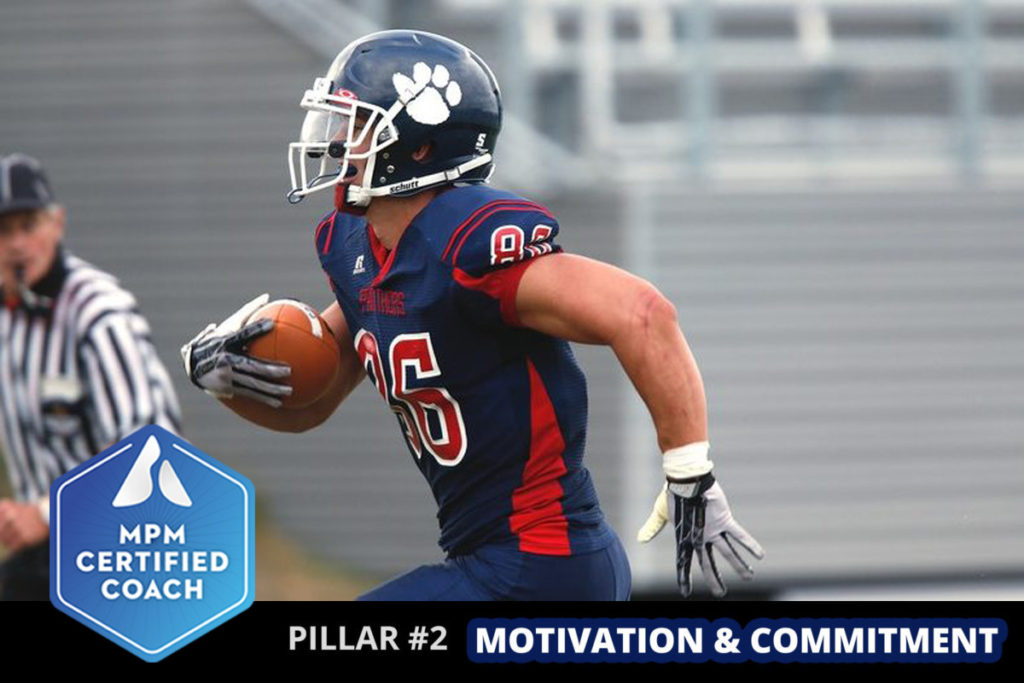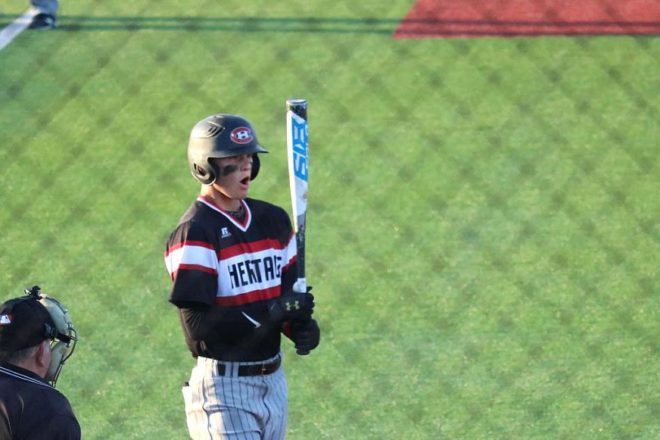
Get this FREE MiniCourse to help your athletes perform their best, overcome any obstacle, and stay focused under pressure.
I don’t know about you, but for me, the responsibility of helping other people achieve their goals can feel overwhelming at times.
Particularly challenging is that, as coaches and trainers, we face an interesting dilemma: our job is to help people reach their full potential, yet a lot of what happens is outside our control.
Even if we write the perfect program or come up with the best game plan, the result ultimately comes down to whether our athletes/team will follow through with it.
But here’s the good news: While there will always be things outside our control, over the past 15+ years as a mental performance coach, I’ve found many of the struggles coaches face come back to a few foundational mental skills that, if developed, will drastically improve results.
These are characteristics that many people feel they have no control over, but with the right approach, they can be developed and improved just like any other aspect of performance.
In today’s article, I’m going to identify what these crucial skills are and outline how you can start coaching them immediately.
The perfect game plan won’t matter if your clients and athletes can’t do THIS
Motivation is an important for success, but it may seem completely out of your control. How do you get your athletes motivated? And how do you help them maintain their motivation so they stay focused and committed to achieving their goals? The truth is that success begins in the mind.
And when it comes to mental performance, few things are more important (or have a greater impact on success) than motivation, commitment, and focus. What if there was a way to train your athletes to show up with more of these things more of the time?
There is.
And step one is the same as it would be if you were training any other aspect of health or performance: the assessment.
The Most Important Assessment for Mental Performance
From day one, coaches evaluate their athletes’ performance to figure out which skills need the most improvement.
But when it comes to mental performance? Most coaches aren’t doing anything, which is a huge missed opportunity. I’m going to show you how to change that.
There are two concepts you have to embrace and put into practice if you want to build teams, clients, and athletes that are more motivated, focused, and committed:
- It’s essential to be proactive — assess these qualities from the beginning so that you know where you’re starting from.
- Motivation, commitment, and focus are skills just like any other aspect of performance that must be trained consistently. Implementing this into your coaching pretty simple, in theory.
First, include some type of motivation assessment—and make sure every athlete you work with fills it out. If you work in a team setting, it works well to have athletes fill out a motivation assessment at the start of the season.
But it’s not enough to just assess your athletes. You HAVE to follow up on what you’ve learned from the initial assessment and continually guide your clients/athletes to stay motivated, focused, and committed.
Over the past 15 years, I’ve used some very nuanced motivation assessments, and while those have their place, it’s best to keep it simple when you’re just getting started. Below is an easy-to-implement, straight-forward motivation assessment you can begin integrating with your clients/athletes, starting today.
The Only Motivation Assessment You Need
With a few targeted questions, you can get a good overall snapshot of someone’s motivation, focus, and commitment.
For example, here are questions I’ve used with many of the MMA fighters I’ve worked with:
- Why are you doing MMA?
- What do you want to accomplish in your MMA career?
- What do you enjoy most about MMA?
- What are your biggest challenges in MMA?
- When have you been most motivated in your career?
- What are the biggest challenges you have to sustaining the commitment it takes to be the best fighter you can be?
- How can I best serve you as a coach to help you?
As you can see, it’s pretty simple to adapt these to fit athletes in a different sport.
What we’re really looking for is why they are doing this (participating in this sport/competing, etc.) and a few of the top challenges they anticipate along the way.
As you listen to their answers, there are just two things I want you to focus on:
1. What is the athlete’s “why”? If you look at the first three questions above, you’ll notice the answers will tell you why the person wants to do what they’re doing.
There are two primary types of motivation: “intrinsic” and “extrinsic.” Intrinsic motivation is internal, meaning you strive for a goal for personal satisfaction or accomplishment. Extrinsic motivation is based on some outside demand, obligation, person, or reward. Research has shown that people who are intrinsically motivated are MUCH more likely to stay committed and focused consistently enough to actually reach their goals.
Your goal: Identify whether the athlete is intrinsically or extrinsically motivated. If their motivation seems intrinsic, great! You’ll still want to provide ongoing motivation coaching as part of your mental performance plan, but this person has the foundation for good commitment and focus. Now, if their motivation seems extrinsic (“My parents want me to play this sport”, “My doctor said I need to drop 20 pounds”, etc.), buckle in, because your ability to guide them to a more intrinsically-driven “why” will be a large determinant of their success.
2. What obstacles/challenges might trip them up? I can’t tell you how often I hear coaches say, “If I could just know what challenges my clients/athletes will face beforehand, this would all be a lot easier.” I always tell them you can, you just have to ask!
Of course, it’s not always that simple, but you can uncover many future challenges by simply asking. So I want you to focus on identifying the challenges you can anticipate based on answers they provide to the motivation assessment.
Make a special note to address these when you’re developing your mental performance training plan so you can prevent them from becoming an issue.

What to do now
The goal of today’s article was two-fold.
First, I wanted to provide an optimistic outlook on one of the biggest challenges you’ll face as a coach. If you’re in this profession for more than a minute, you’ll know that success hinges on a lot more than the physical side of performance.
Mental performance is just as important to competitive success—starting with motivation, focus, and commitment. These are skills that can be developed and improved with the right training.
Second, I wanted to arm you with a strategy you can begin using to improve motivation, focus, and commitment. And as outlined today, the first step is to assess your athletes’ motivation and commitment levels. This will give you an idea of what you can do to help them improve.
I’m glad you took the time to read this article. But remember, these principles won’t have any impact on your coaching unless you decide to do something with them. So, here’s your assignment for this week to get you started:
- Implement the motivation assessment with AT LEAST one athlete you’re working with this week. If you’re a coach in a team setting, have your entire team fill it out.
- Block off an hour and evaluate the assessment for the two things we identified today:
a. What’s their “why”? Are they leaning more toward intrinsic or extrinsic motivation?
b. What are a few of the big challenges they identified?
Those two things are all you should focus on for now.
In the next article, I’m going to show you 3 strategies you can use to train for more motivation, focus, and commitment (even when it’s hard).
These are strategies you can use after conducting the motivation assessment we covered today to develop a mental performance training plan.

